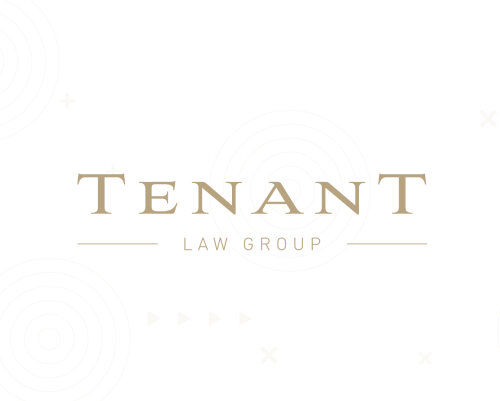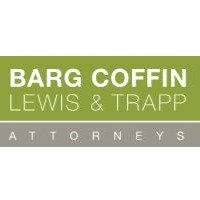Best Land Use & Zoning Lawyers in San Francisco
Share your needs with us, get contacted by law firms.
Free. Takes 2 min.
Free Guide to Hiring a Real Estate Lawyer
List of the best lawyers in San Francisco, United States
About Land Use & Zoning Law in San Francisco, United States
Land use and zoning laws in San Francisco are designed to regulate the development and use of land within the city. This framework balances the need for urban growth with the protection of community interests and the environment. San Francisco has a complex zoning ordinance that mandates how land can be used, including residential, commercial, industrial, and mixed-use development. These regulations are intended to ensure that properties are used in a way that is beneficial to residents and businesses alike, while also preserving the unique character and environment of the city.
Why You May Need a Lawyer
There are several common situations where individuals or organizations might require legal guidance regarding land use and zoning in San Francisco:
- Proposing new construction or development projects that require zoning variances or conditional-use permits.
- Disputes with neighbors or local government over land use decisions or zoning violations.
- Navigating complex permit application processes for building or remodeling projects.
- Protecting property rights against adverse zoning changes or eminent domain proceedings.
- Understanding compliance requirements for historical preservation regulations.
Local Laws Overview
San Francisco's local land use and zoning laws are comprehensive. Key aspects include:
- Zoning Maps and Districts: San Francisco is divided into multiple zoning districts, each with specific rules regarding the use and development of land.
- Use Permits: Certain types of developments require special permits, such as conditional use or variances, to modify standard zoning rules.
- Inclusionary Housing: Regulations requiring developers to include affordable housing units or contribute to housing funds.
- Environmental Considerations: Projects may need to undergo environmental reviews and comply with the California Environmental Quality Act (CEQA).
- Historical Preservation: Buildings or areas of historical significance may be subject to special preservation laws.
Frequently Asked Questions
What is zoning, and how does it affect my property?
Zoning refers to laws that regulate how land can be used within particular areas. It affects your property by determining what can be built on it, the types of activities permitted, and the density of developments.
How can I find out the zoning designation of my property?
You can consult the San Francisco Planning Department's zoning maps or contact them directly to determine your property's zoning designation.
What do I need to do to obtain a variance?
To obtain a variance, you must demonstrate that strict enforcement of zoning codes would cause undue hardship due to unique circumstances related to your property. A public hearing is usually required for approval.
What is a conditional use permit?
A conditional use permit allows a property owner to use their land in a way not typically permitted under current zoning laws, provided specific conditions are met.
How do zoning laws address affordable housing in San Francisco?
Zoning laws in San Francisco include inclusionary housing requirements, which mandate developers to provide a certain percentage of affordable housing units or make in-lieu fee contributions to a housing fund.
How long does the permit approval process take?
Permit approval times vary based on the complexity of the project and compliance with zoning and environmental requirements. Simple permits might take a few months, while larger projects could take a year or more.
What happens if I violate a zoning ordinance?
If you violate a zoning ordinance, you may face penalties, including fines, orders to cease operations, or required modifications to comply with regulations.
Can zoning laws change, and how would that impact me?
Zoning laws can change through amendments initiated by city planners, elected officials, or community members. Changes could impact property values, development potential, or permissible uses of your property.
What role does the San Francisco Planning Department play in zoning?
The San Francisco Planning Department is responsible for maintaining and enforcing zoning regulations, reviewing project proposals, conducting environmental reviews, and guiding city development in line with urban plans.
Are there special zoning rules for historical properties?
Yes, properties with historical significance might be subject to additional preservation regulations that restrict alterations to preserve their historical value and character.
Additional Resources
Here are some resources that may be helpful if you need legal advice or additional information about land use and zoning in San Francisco:
- San Francisco Planning Department: Offers resources on zoning maps, development plans, and permit applications.
- California Environmental Quality Act (CEQA): Provides guidelines on environmental reviews that may affect land use projects.
- Historic Preservation Commission: Provides information on regulations and approvals needed for historical properties.
- Land Use and Environmental Planning Lawyers: Legal professionals specializing in navigating land use and zoning laws.
Next Steps
If you require legal assistance regarding land use and zoning in San Francisco, consider the following steps:
- Identify Your Needs: Define the specific legal issue or question you need assistance with.
- Consult a Professional: Reach out to a lawyer specializing in land use and zoning for a consultation.
- Gather Documentation: Compile any relevant documents, including property deeds, zoning maps, and correspondence related to your issue.
- Engage with Local Agencies: Contact relevant San Francisco city agencies for guidance or documentation that may assist your situation.
Lawzana helps you find the best lawyers and law firms in San Francisco through a curated and pre-screened list of qualified legal professionals. Our platform offers rankings and detailed profiles of attorneys and law firms, allowing you to compare based on practice areas, including Land Use & Zoning, experience, and client feedback.
Each profile includes a description of the firm's areas of practice, client reviews, team members and partners, year of establishment, spoken languages, office locations, contact information, social media presence, and any published articles or resources. Most firms on our platform speak English and are experienced in both local and international legal matters.
Get a quote from top-rated law firms in San Francisco, United States — quickly, securely, and without unnecessary hassle.
Disclaimer:
The information provided on this page is for general informational purposes only and does not constitute legal advice. While we strive to ensure the accuracy and relevance of the content, legal information may change over time, and interpretations of the law can vary. You should always consult with a qualified legal professional for advice specific to your situation.
We disclaim all liability for actions taken or not taken based on the content of this page. If you believe any information is incorrect or outdated, please contact us, and we will review and update it where appropriate.
















